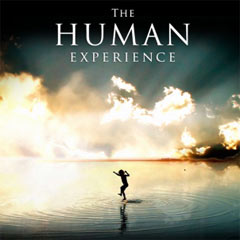Film shows how to be human
By Scott Mair, Youth Speak News The superb and thoughtful documentary The Human Experience reminds us that enduring difficulty and stepping out of one’s “comfort zone” and taking up the cross make us human.
The superb and thoughtful documentary The Human Experience reminds us that enduring difficulty and stepping out of one’s “comfort zone” and taking up the cross make us human.That basic Christian idea lives on in four young men. They are brothers Jeff and Cliff Azize and their friends Matthew Sanchez and Michael Campo. These men have not only answered the call of Jesus, but have made a documentary showing how they answered it. The film made its Canadian premiere with a pre-screening in Toronto at Dante Alighieri Academy May 28. The film has gone through more than 200 pre-screenings worldwide, racked up more than 18 awards and its producers at Grassroots Films in New York are working on a deal to have it released in theatres across the United States.
The Human Experience fills hearts with emotion and heads with questions about life and the purpose of mankind. It touchingly reveals both the potential of man and the work of God.
Their journey is a long and affecting one that brings the four friends to a variety of places and connects them with a variety of people. It begins with the Azize brothers sleeping on the streets of New York City, and then caring for orphans in Peru.
Sanchez and Campo join them on their visit to a leper colony in Ghana. In addition, the Azizes reunite with their estranged father to forgive him for physically abusing them during their childhoods.
There’s a lot to like about this documentary. For one thing, it’s beautifully shot. Director Charles Kinnane takes advantage of the exotic locations found in Africa, South America and New York, treating the viewer to an array of eye-popping landscapes. The most striking settings are the chilly streets of New York, where the Azize brothers sleep in cardboard boxes to experience the ravages of homelessness.
Furthermore, Kinnane seamlessly integrates commentary from famous figures such as Rabbi Simon Jacobsen and civil rights activist Alveda King into the film, giving it an enjoyably intellectual vibe.
More importantly, the film showcases some touching encounters. It also conveys the truth that poverty still exists in the 21st century and is not confined to any one country or continent. Everywhere the young men go there seems to be someone in need of help or someone who has experienced terrible hardship. The film does an excellent job of putting a human face on this suffering without making it the sufferer’s defining characteristic. For example, a boy named Victor who was born without arms and only one leg, is shown both engaging in rigourous physical therapy and struggling to maneuver a tricycle with his head. This shows that while those born without limbs face grave trials, they can still love life.
In addition to the images, there are some interesting conversations between the men and a transient about how circumstances can shape one’s choices, and there is also that touching reunion between the Azize brothers and their father.
While the film is centred on the experiences of the men and the people they meet, it also contains important biblical overtones. Many sequences in the film reflect the words of Jesus. The reunion between the brothers and their father is reminiscent of the parable of the prodigal son, although in this case the roles are reversed. The encounter with the Ghanaian lepers is not unlike Mark 1:40 where Jesus manages to bring joy even to the most hated outcasts.
To reach their full potential, the men had to step out of their comfort zone and work with those regarded as pariahs.
Most importantly, whether it was on an icy sidewalk, in an orphanage or at a festering leper colony they had to face difficulty and “take up the cross” in order to become fully human as God intended.
A documentary that conveys this truth in a moving and effective way is without a doubt a spectacular movie.
(Mair, 19, is a second-year communications student at Carleton University.)
Please support The Catholic Register
Unlike many media companies, The Catholic Register has never charged readers for access to the news and information on our website. We want to keep our award-winning journalism as widely available as possible. But we need your help.
For more than 125 years, The Register has been a trusted source of faith-based journalism. By making even a small donation you help ensure our future as an important voice in the Catholic Church. If you support the mission of Catholic journalism, please donate today. Thank you.
DONATE
